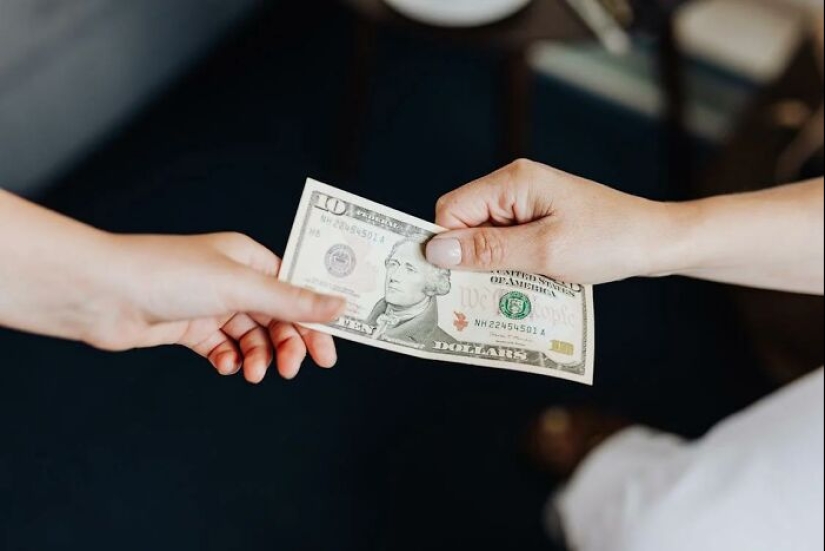‘Today I Learned’: 10 People Share Fascinating Things They Didn’t Learn At School
Categories: Economy | People | Photo project | Society | World
By Vika https://pictolic.com/article/today-i-learned-10-people-share-fascinating-things-they-didnt-learn-at-school.htmlEvery single day is an opportunity to learn something new. But even if you’re not actively reading scientific studies or in-depth socio-economic analyses, you can still pick up a lot of new information just by spending time online.
And if you ever wanted to share all those interesting tidbits of knowledge with everyone else, well, the massively popular ‘Today I Learned’ online group might be the perfect place to do it. Its members post the most interesting and unusual facts about the world that they heard about just recently. We’ve collected some of the freshest ones to share with you, Pandas. Scroll down to check them out (and don’t forget to take notes so you can impress your friends later).
Bored Panda wanted to get to grips with how we can all continue to stay curious about the world and how we can check the reliability of scientific claims. So, we reached out to N. Otre Le Vant, the author of ‘On Progress in Physics and Subjectivity Theory’ and the founder of Inisev. He kindly shared his insights with us. You'll find his thoughts below.
10 PHOTOS

#1
In 2001, a 13-year-old Boy Scout named Cody Clawson went missing for over 18 hours near Yellowstone Park. Clawson resorted to using his belt buckle to signal to planes overhead. Eventually, he got a pilot’s attention - and that pilot was none other than Harrison Ford - who rescued Clawson.
N. Otre Le Vant researches progress in science and uses a pseudonym on purpose because he thinks his name is irrelevant. In his book, 'On Progress in Physics and Subjectivity Theory,' he makes the point that it's the ideas that count, not the people who came up with them. "Just because someone is likable or not doesn't mean all their ideas are good or bad," he told Bored Panda via email. "We should separate the art from the artist."
According to the researcher, we're all born with the gift of curiosity, but some of us end up losing it as we grow older. From his perspective, one reason why we grow less curious about the world is that the social norms that surround us force us into a mindset of accepting things as they are, without question. This means that some people feel pressured to go with the flow of the crowd, switching off their minds.
"We must resist this 'easy way' and keep the playful, challenging, and 'always asking why' approach that was the main reason we learned so many things when we were kids. If we can retain this mindset, we’ll naturally stay curious," N. Otre Le Vant told Bored Panda.

#2
In 2015, a woman's parachute failed to deploy while skydiving, surviving with life-threatening injuries. Days before, she survived a mysterious gas leak at her house. Both were later found to be intentional murder plots by her husband.
We asked the researcher for his thoughts on how the average person can determine whether the scientific claims they spot online are reliable or not. He was happy to shed some light on this.
"The scientific method can be summarized as follows: a theory is conceived (supported by evidence) and then exposed to attacks by other scientists. Eventually, only the theories that are still standing after the avalanches of attacks are considered as 'truth'—not as ultimate truth, but only as long as no refutation is successful, or a better theory is found. This approach has proven to be very robust, and we owe almost all of our modern technology and standard of life to it," the author of 'On Progress in Physics and Subjectivity Theory' explained.
"Therefore, any theory that deviates from this scientific method should be regarded skeptically. Examples include theories that are so fuzzy they cannot be refuted, or those claimed to be true without having undergone a thorough scientific review."

#3
In the 1960s, Washington D.C.'s poor areas were plagued by severe rat problems until Julius Hobson began catching them by trapping enormous rats and attaching the cage to his car’s roof, and drove to affluent districts where he warned of setting the rodents free, spurring rat control measures.

#4
There was a girl's dance camp nearby when the atomic Trinity test occurred. The girls played in the falling white ash. 10 of the 12 girls died before 40.
That being said, he stressed that we shouldn't ignore new ideas that haven't (yet) been peer-reviewed.
"After all, that’s how all ideas start. However, these ideas must never be claimed to be true, but regarded as ‘interesting hypotheses’ at best. Those who assert early-stage ideas as true demonstrate a lack of understanding of how easy it is to be wrong and don’t exhibit the level of humility required for progress in science."

#5
Weather forecasters tend to exaggerate the chance of rain because if it rains when they say it wouldn't, people get angry, but if it doesn't rain when they say it would, they are happy. This is known as "wet bias."
Many people fall prey to the illusory truth effect, a cognitive bias where the more often we’re exposed to information, the more plausible we think it is. In other words, repetition makes us believe something is (more likely to be) real, even if the information is thoroughly false. Even knowing about this effect doesn’t make us immune to it… but having more awareness is always a plus.
It would take too much time and effort to double-check every single claim, so it’s best to focus your energy on checking the reliability of the outlet. Reliable organizations always show the evidence behind the facts. They also tend to disclose any conflict of interest, use multiple sources to back up their claims, and are quick to update their information if they make a mistake. Even the best sources will make mistakes sometimes, and nobody is completely objective, but some outlets have a solid track record of reliability, while others peddle opinions as facts.

#6

#7
Chief Baker of the Titanic, Charles Joughin, survived by getting smashed on Brandy and calmly paddling around until dawn when he was rescued by a lifeboat. He was also one of the last people off the ship, riding the stern rail into the sea like an elevator.
The TIL community is very strict when it comes to sharing facts. The moderators demand that their members only post facts that are accurate, verified, and supported by reputable sources. There’s no room here for personal opinions, political posts, or anecdotes.
What’s more, you’re not allowed to refer to sources that are more recent than two months. All of this helps ensure that the facts shared on r/todayilearned are as accurate as possible. That, along with the fun factor, is a huge draw for many internet users. It’s education and entertainment (aka edutainment) in one place.

#8
Cold temperatures weaken nasal immunity, making us more vulnerable to viruses. A mere 5°C drop in nasal tissue temperature reduces immune response by nearly half.

#9
In 1915 tipping was so unpopular that 6 states made it illegal to do so.

#10
In 1969 Ted Conrad embezzled $215,000 from a bank in Ohio & proceeded to evade capture for the remaining 51 years of his life. He became 'Thomas Randele' & settled in Massachusetts. Described by authorities as a deathbed confession, in 2021 he told his wife & daughter who he was & what he did.
Keywords: People | Information | Analysis | Opportunities | Economic analysis
Post News ArticleRecent articles

It's high time to admit that this whole hipster idea has gone too far. The concept has become so popular that even restaurants have ...

There is a perception that people only use 10% of their brain potential. But the heroes of our review, apparently, found a way to ...
Related articles

This is an amazing photo project of Mike Harvey: it takes people in his car, and photographs them at the same time, we are about to ...

Surely, many of you had classmates who, to put it mildly, were not distinguished by outstanding external data. Braces, strange ...

Yes, Pets benefit our health and it is proven by science. Their very existence certainly makes us happier, but also prolongs life. ...

New Year's is a time to surprise and delight loved ones not only with gifts but also with a unique presentation of the holiday ...